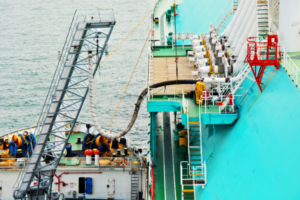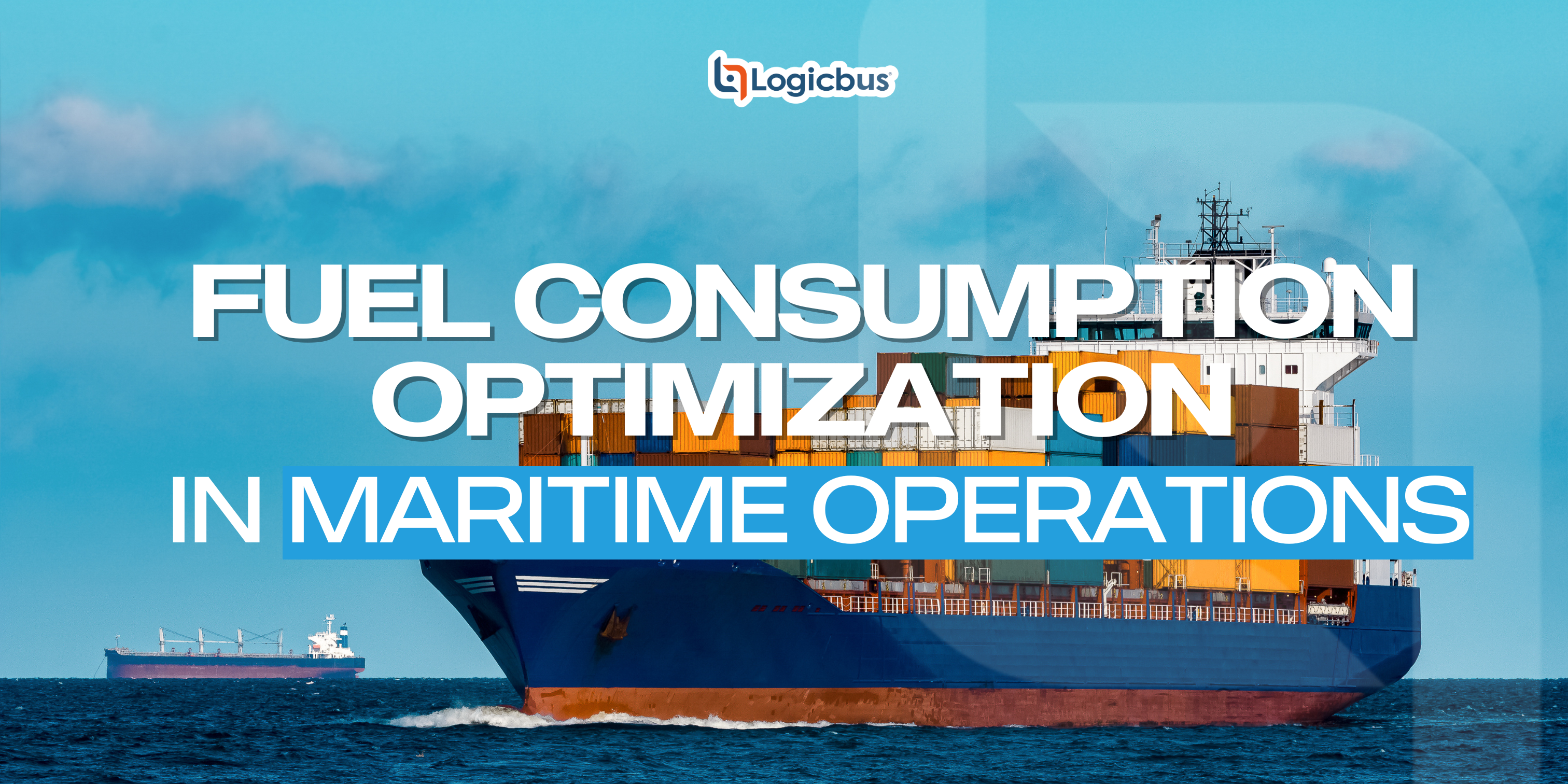Leveraging cutting-edge technologies like advanced flow meters, data acquisition systems (DAQ), and real-time analytics, fuel consumption optimization has become a game-changer for the maritime industry. Below, we delve deeper into how these solutions work and their significant benefits.

How Fuel Optimization Works
- Monitoring with Advanced Flow Meters
Modern flow meters provide accurate real-time measurements of fuel consumption across various vessel systems, such as propulsion engines, auxiliary engines, and boilers. These meters are capable of handling the harsh maritime environment while delivering precise data critical for analysis. - Data Acquisition and Analytics
Fuel data from flow meters is captured by advanced DAQ systems. These systems process and transmit the data to analytical platforms, where it is integrated with other operational metrics, including speed, route, weather conditions, and engine performance. - Real-Time Analysis and Insights
With real-time analytics, operators can visualize fuel consumption patterns, identify inefficiencies, and receive actionable recommendations. These insights enable operators to adjust engine loads, optimize routes, and maintain consistent speeds, all of which contribute to reduced fuel consumption. - Integration with Fleet Management Systems
Fuel optimization technologies seamlessly integrate with existing fleet management and IoT systems. This integration allows a comprehensive view of vessel performance, combining fuel metrics with maintenance schedules, cargo handling, and environmental compliance tracking.
Advantages of Fuel Optimization
- Cost Reduction
Fuel accounts for a significant portion of operational expenses, often comprising up to 50% of a ship’s operating budget. With precise monitoring and optimization strategies:
- Unnecessary fuel wastage is minimized.
- Route adjustments and engine tuning contribute to fuel savings.
- Overall, fleets can save millions annually, especially in large-scale operations.
- Environmental Compliance
Maritime operations face increasing pressure to comply with international environmental standards, such as the International Maritime Organization’s (IMO) MARPOL Annex VI regulations, which target sulfur oxide (SOx) and carbon dioxide (CO2) emissions. Fuel optimization directly contributes to compliance by:
- Reducing greenhouse gas emissions.
- Enabling operators to use cleaner fuel mixes efficiently.
- Helping fleets transition toward alternative fuels like LNG or biofuels.
- Improved Operational Efficiency
By providing real-time feedback, optimization systems allow for better decision-making regarding:
- Engine operation.
- Route planning based on weather and currents.
- Load distribution to maintain optimal performance.
This proactive approach ensures that vessels operate at peak efficiency throughout their journey.
- Long-Term Sustainability
Fuel optimization isn’t just a short-term fix. Data-driven strategies create a foundation for continuous improvement in operational practices, including:
- Predictive maintenance to reduce fuel-inefficient breakdowns.
- Historical performance analysis to refine future voyages.
- Long-term shifts toward sustainable energy solutions.
- Seamless Integration
Modern fuel optimization solutions are designed to integrate with fleet management software and IoT systems, enabling:
- Unified dashboards for easy monitoring.
- Predictive analytics combining fuel data with overall fleet performance.
- Simplified compliance reporting for environmental standards.
Fuel Optimization: A Case Study
Consider a fleet of container ships that implemented an advanced fuel optimization system:
- Initial Challenge: High fuel costs and increased pressure to meet emissions targets.
- Solution: Installed advanced flow meters and DAQ systems integrated with an IoT-enabled analytics platform.
- Results:
- Achieved a 15% reduction in fuel consumption.
- Reduced CO2 emissions by over 20,000 metric tons annually.
- Saved approximately $1.5 million per vessel per year in fuel costs.
Conclusion
Fuel consumption optimization is no longer an optional upgrade for maritime operations—it’s a necessity. By investing in advanced technologies and adopting data-driven practices, operators can achieve significant cost savings, meet environmental regulations, and ensure sustainable operations. As the industry continues to evolve, these solutions will become essential tools for maintaining competitiveness in the global market.
Fuel efficiency isn’t just about saving money; it’s about shaping a greener, more sustainable future for maritime transportation.
sales@logicbus.com | support@logicbus.com | +1 619 616 7350 | Start conversation





